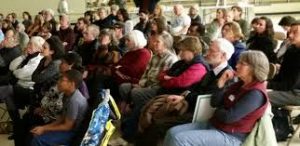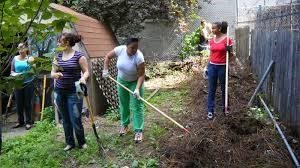Still Doing Democracy!
“We the people in order to form a more perfect Union, establish Justice, ensure domestic Tranquility, provide for the common defense, promote the general Welfare, and secure the blessings of Liberty to ourselves and our Posterity...” The Preamble of the U.S. Constitution

Too many of us are isolated and detached from our neighbors and our local, state, and national institutions. How do we become re-engaged in the daily work of doing democracy when the social and political landscape is full of conflict instead of conversation? Still Doing Democracy! offers a framework for understanding and a set of crucial skills for participating in a wide range of political, civic, and cultural efforts as effective agents of social change. These are insights and skills we need to be effective engaged citizens in today’s fragmented and polarized culture.
The following is a brief introduction to the book, workbook and training programs being developed.

Engaged Citizens Needed Now More Than Ever
Those who profess to love freedom and yet deprecate agitation are those who want crops without plowing. This struggle may be a moral one, or it may be physical, but it must be a struggle. Power concedes nothing without a demand. It never did and it never will. Frederick Douglass, 1857
Engaged Citizens participating in collective movements have been the energy of social change throughout history and, especially in the last several decades in the United States.
WHAT ENGAGED CITIZENS NEED TO KNOW
1. Engaged Citizens, Social Change, and Social Movements
We begin with a simple premise: a democratic society is the collaborative creation of its citizens who share basic commitments to one another and to the greater community. Today, the question of who is included in “we the people” remains contentious.
2. Understanding the Social, Political, and Cultural Conversation
How We Know? Why Do We Have Different Beliefs and ‘Truths
“We see the world not as it is, but as we are.” attributed to The Talmud
What is it to know? What shapes individual, group, societal, and cultural knowledge?
How Do We Learn About Each Other? Listening to Stories
We tell stories to make sense of the world. We need to learn to inquire about the lives of others and to listen to their stories if we are to understand how they perceive the world.
How Do We Understand the National Stories that Divide Us?
Political, social, and cultural belief systems are shaped by the same dynamics that shape our individual perceptions. In these stories words can mean so many different things depending on the context, the point of view, and who is seeking benefit, or have dominance over who.
3. Being an Engaged Citizen
"The human heart is the first home of democracy…Can we listen with our whole beings, not just our minds, and offer our attention rather than our opinion?” Terry Tempest Williams, 2004
To be an effective participant in civic life and social change it is important to know who you are, to know your own story. Are you clear about what you believe and what matters to you? Are you aware of your own biases – implicit and explicit? How do you listen to the experience of others? How do you engage in the task of mutual learning? How do you connect and collaborate across perceived and real differences?
THE ENGAGED CITIZEN GETS TO WORK
1. Analyze the Foundations of our Societal Myths
“We can have democracy in this country, or we can have great wealth concentrated in the hands of a few, but we can't have both.” Louis D. Brandeis, 1941
In order to effectively challenge and change our situation one of the first steps is to understand why we are here and how we got here. We need to understanding myths and beliefs that sustain conditions that undermine our basic democratic values.
2. Analyze Current Issues and Develop Effective Responses
To develop effective action strategies, we develop our analytical skills turning our attention to current issues.
Understanding current social issues– voting rights, mass incarceration, healthcare, tax reform, and protection of the environment - by analyzing how societal myths work against the promise to protect the ‘general Welfare’ and what we can to do change that.
We adapt Bill Moyer’s Eight Stages of Successful Social Movements to analyze a current issue where collective action has coalesced into social movement.
3. Compassion, Connection, and Response-Ability
What, we ask, is our Response-Ability as citizens of a democracy that offers us so much choice in a world where so many have so little choice in their lives? The concepts of compassion for self and others as we connect can guide the way in which we respond and how we utilize our enhanced skillfulness as Engaged Citizens.
“Another world is not only possible, she is on her way. On a quiet day, if you listen carefully, you can hear her breathing.” Arundhati Roy, 2008
EXPLORING THESE IDEAS – Case Studies
"All it takes is a few good people to keep you sane." Chris Rock
The MAP model applied to contemporary movements
Stories of engaged citizens making a difference in our lives.
If you think an Engaged Citizenry is important in meeting today’s challenges, please contribute to this effort with a tax-deductible donation at https://humanscienceinstitute.org our fiscal sponsor.